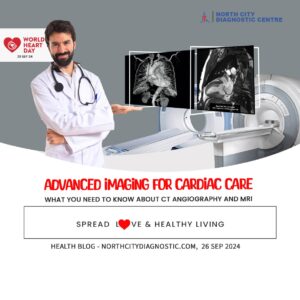
Menu
We all have plans for the future, don’t we? We make investments, plan holidays, plan for a new house, or car, and most importantly plan for retirement. We plan so that we can pay our bills on time. But how many of us make investments in health? Our health investments remain in the confinements of medi-claim premiums and looking good.
How often do you go to the garage to check if your car is running fine?
How many times have you bothered to check if your engine is running ok? Your engine is your heart.
If you think it’s not the time. Think again think hard.
Heart diseases affect not just the old but young adults and teens as well. As per the reports published in The Times of India, according to the Indian Heart Association, 50% of all heart attacks in Indian men occur under 50 years of age and 25% of all heart attacks in Indian men occur under 40 years of age.
Time! A very important dimension in life. With increasing stress levels, unhealthy eating habits, addictions, and sedentary lifestyles, we are inadvertently putting our hearts at risk daily.
Given these lifestyle challenges, regular cardiovascular screenings have become not just advisable but essential. Such screenings serve as invaluable preventive measures, playing a critical role in identifying potential issues before they escalate into life-threatening problems. By prioritizing these screenings, you’re investing in a longer, healthier life where your heart beats strong…becoz your heart health matters!

“Do your part, care for your heart.”

Please choose an option to the questions below:
Cardiovascular screening refers to a series of tests and evaluations aimed at assessing your heart health – risk for heart disease and other related conditions. These screenings are critical for early detection and effective management of cardiovascular issues, such as hypertension, high cholesterol, and heart arrhythmias, among others.
Typically, a cardiovascular screening might include:
Blood Pressure Measurement: Monitoring your blood pressure can identify hypertension, a major risk factor for heart disease.
Blood Tests: A lipid profile can help check levels of cholesterol and triglycerides. Elevated levels can indicate an increased risk of developing atherosclerosis, which can lead to heart attacks or strokes.
ECG: An electrocardiogram monitors the electrical activity in your heart and can reveal irregularities in heartbeat patterns.
Stress Tests: These tests monitor heart activity during physical exertion to see how well the heart responds to stress.
Imaging Tests: These could include Echocardiography, and Cardiac CT Angio, for detailed images of your heart’s structure and function.
Lifestyle and Family History Assessment: Your physician may ask you about your diet, exercise habits, smoking and drinking behavior, and your family’s medical history.
BMI Calculation: Body Mass Index can give insight into whether you’re overweight, which is another risk factor for heart disease.
Consult your healthcare provider to determine which tests are most appropriate for you. Timely and comprehensive cardiovascular screening is an investment in your long-term heart health.
Avail specialized Cardiac check-up and screening. North City Diagnostic Centre offers state-of-the-art health check-up and screening packages at affordable prices. Call 
Check-out for State-of-the-Art Cardiac CT Angio at Department of Cardiology
If you have a history of heart disease in your family, or if you have been experiencing symptoms like chest pain, shortness of breath, or palpitations, you should go for cardiovascular screening. These screenings are valuable tools for assessing cardiovascular health and identifying potential risk factors for heart disease.
However, not everyone needs to undergo extensive screening. Here’s a breakdown of who should consider it:
Generally, adults aged 40 and above are encouraged to have regular cardiovascular screenings. The risk of heart disease increases with age, making periodic evaluations essential.
If heart disease, stroke, or other cardiovascular conditions run in your family, it’s prudent to begin screenings earlier.
Smoking significantly increases the risk of cardiovascular diseases. If you smoke or have a history of smoking, cardiac screenings can be vital.
Elevated levels of either increase your risk of heart disease and warrant more rigorous screening.
Diabetes is a known risk factor for heart disease. Regular cardiac assessments can monitor the heart’s condition and catch potential issues early.
Excess weight contributes to multiple risk factors for heart disease, such as high blood pressure and elevated cholesterol levels.
Lack of physical activity is a significant risk factor for heart disease. If you lead a sedentary lifestyle, screenings can offer crucial insights into your cardiovascular health.
If you’re experiencing symptoms like chest pain, shortness of breath, or palpitations, immediate cardiac screening is advisable.
The risk of heart disease rises for women post-menopause, making cardiac screenings increasingly important.
If you’ve already been diagnosed with a heart condition, regular screenings help monitor the disease’s progression and the effectiveness of your treatment.
Improving heart health involves lifestyle changes, medical intervention, and vigilance. Follow these steps to benefit your cardiovascular system:
· Post-Menopausal Women: Should have annual screenings due to increased risk.
At North City Diagnostic Center we offer personalized testing schedule that aligns with your medical history and risk factors. Consistent monitoring can be invaluable for early detection and effective management of heart-related conditions. It’s not just about how often you test but making sure that the tests are aligned with your overall health profile for maximum benefit.
https://www.ncbi.nlm.nih.gov/pmc/articles/PMC5072004/
https://www.healthline.com/health/heart-health/scheduling-heart-health-checkup
https://www.ahajournals.org/doi/10.1161/01.CIR.97.22.2283
https://www.mainlinehealth.org/blog/essential-cardiac-tests
https://www.who.int/europe/health-topics/cancer/cardiovascular-diseases
#HeartHealth #CardiovascularScreening #PreventativeCare #KnowYourNumbers #BloodPressureAwareness #CholesterolCheck #HealthyLiving #WellnessJourney #HealthCheckUp #TakeChargeOfYourHeart #WellnessMindset #NDC #NorthCityDiagnosticCentre #WorldHeartDay
35-A ,Canal West Road
Near Gouri Bari Bus Stop
Kolkata – 700004.
Local: +91 33 6605 0888